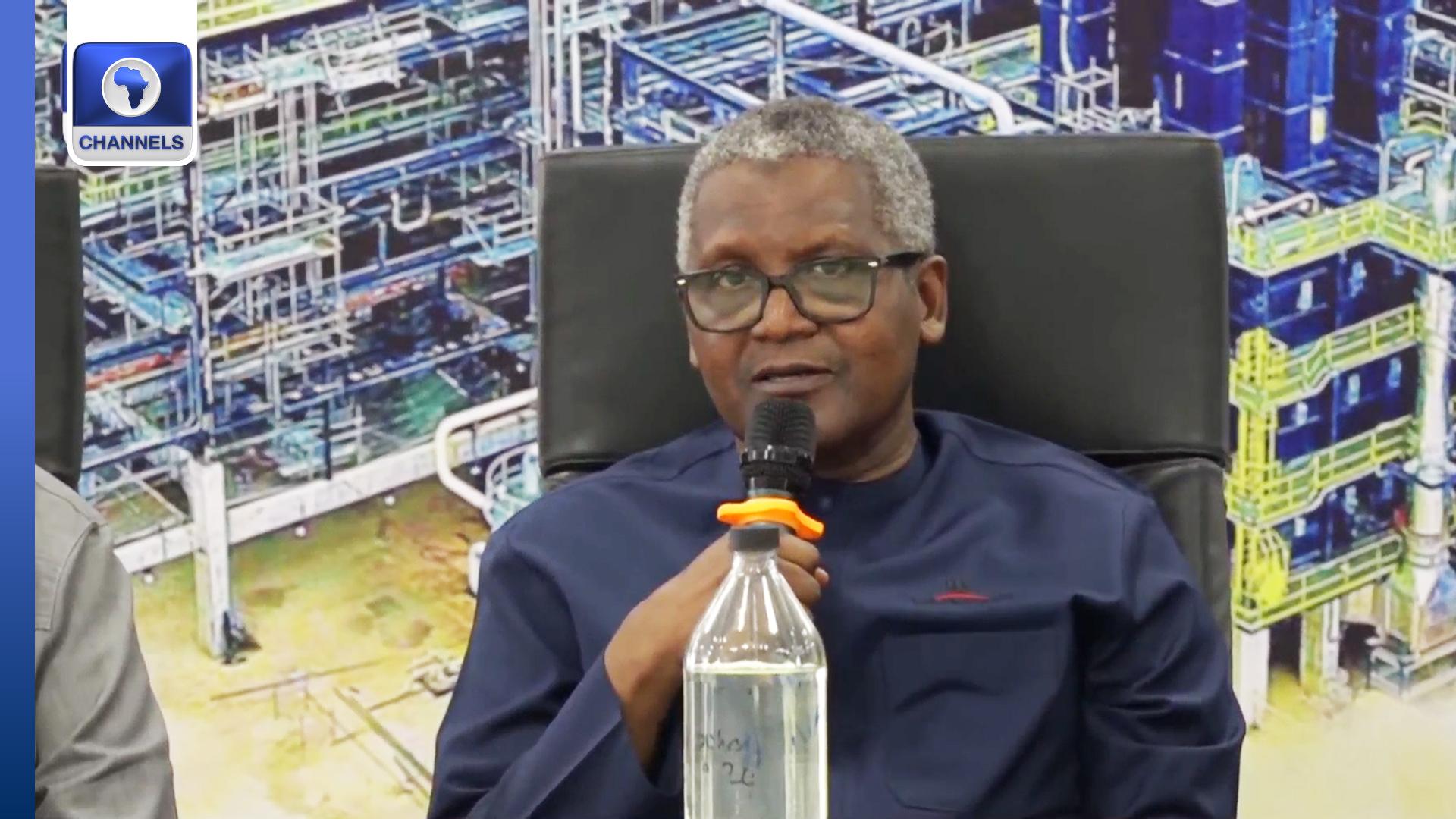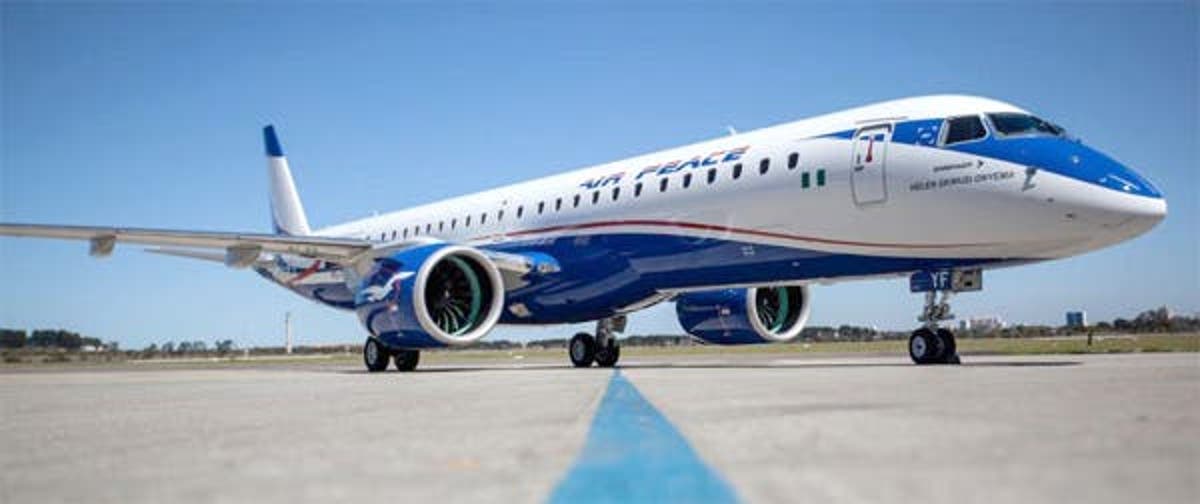Business
Naira redesign: Dollar scarcity hits BDCs, sells at N818/$

The naira has dropped to N818/$1 at the parallel market in Abuja and N815 in Lagos after the Central Bank of Nigeria announced plans to redesign some banknotes.
Daily Trust reports that the naira is currently under high selling pressure in the black market following the CBN’s announcement that the newly redesigned naira notes would start circulating in the economy from December 15, 2022.
Since the apex bank made this announcement last week, the naira has fallen from its initial record low of N765/$1, losing over N53 in five days, further piling pressure on the local currency.
One of our correspondents who visited the popular Bureau De Change hub at Wuse Zone 4, Abuja reports that several customers came looking for dollars but had difficulty accessing it.
Some of the offices visited included AA Funtua BDC, Mourison BDC, Wireless Resources BDC, Bani Mbaka BDC, Amfani Girma BDC and others.
Our correspondent who also posed as a customer to purchase $10,000 couldn’t get any BDC who had up to that amount of dollars to sell. Some of the BDCs said they didn’t even have $5,000 to sell.
Some of the operators confirmed there was a spike in demand following the CBN’s announcement that it will introduce new currencies.
READ ALSO:
- Aregbesola’s omission from presidential campaign surprising – APC faction
- Davido Loses Ifeanyi, His First Son With Chioma Rowland
- Sad, how 15-year-old LASUSTECH secondary student was chased to death
Operators who spoke to Daily Trust said they’ve seen an unusual demand and mop-up in the past few days.
One of the operators who identified himself as Ismailia Yusuf said the US dollar was very scarce. He also said the EFCC had visited the BDCs to scavenge for those offloading naira for dollars.
He couldn’t confirm if arrests were made but he did say operators were careful of exchanging huge amounts of naira for dollars.
It was not immediately clear if the scarcity is also a result of operators hoarding the dollars to create more scarcity and make more profit.
Another operator, Nura, said before the announcement by the CBN, they could do an exchange for up to $500,000 and sometimes $1m exchange but it’s no longer possible.
‘Customers rarely take dollars for sale’
Nura said even the walk-in customers rarely take dollars for sale and that might have impacted the scarcity as well.
He also hinted that some BDCs were being invited to the houses of politically exposed persons to plan how to secure forex to avoid the eagle eye of the EFCC.
“Some people with huge cash can invite BDCs operators to their homes to buy dollars and that might already be happening,” he said.
A survey at some of the black markets in Lagos revealed that bureau de change operators bought dollars for between N790 and N800 while they sold for between N795 and N805.
An operator at Allen Roundabout in Lagos, Ismail Muhammed said dollars were still selling for less than N800/$1 as against the speculated N815.
“I buy for between N780 and N785 while I sell for between N785 and N790. The dollar has not reached N800. It is all speculation,” he said.
Another operator, Alhaji Nafiu Isah, said that the dollar was on the rise and might reach N820 before the end of the week.
“I buy for N800 and sell for N805 for now but it is on the rise and might get to N820 or N830 very soon,” he said.
Alhaji Abdullahi Olugbede said he was willing to buy for as high as N807 if the volume was higher than $4,000.
Efforts to speak to the leadership of the Association of Bureaux De Change of Nigeria (ABCON) on the depreciation of the naira proved abortive as they declined to comment.
READ ALSO:
- Proposed introduction of N5,000 denomination still on course – Sanusi
- 2023: Afenifere goofed, can’t decide for South-West – Sowore
- Just in: Buhari travels to London for medical checkup
- Contractor hands over completed$1.5bn Lekki port, Lagos okays six-lane access road
It would be recalled that the CBN barred the sale of Forex to BDCs operators across the country in July 2021. The CBN said the parallel market had become a conduit for illicit forex flows and graft.
There was no comment from the CBN on the recent development.
How naira lost 28% since January
According to Nairametrics’ FX tracker, the naira has lost over 28% of its value between January and October 2022 due to increased demand for the dollar amidst sustained dollar scarcity. The naira started the year at N565 to a dollar.
The exchange rate at the Investors and Exporters window, where FX is traded officially, has also seen some systematic devaluation so far this year, moving from an average of N416/$1 last year to as high as N444/$1 as FX supply continues to dwindle in recent times. Data tracked by Nairalytics showed that the sum of $362.7 million was traded at the official FX market last week, marking a decline from $425.3 million recorded in the previous week. This was even significantly lower than the average of $500 and $1 billion weekly trades recorded sometime earlier in the year.
Naira failing as a store of value – Experts
An economist and Chief Executive Officer of the Centre for the Promotion of Private Enterprise (CPPE), Dr Muda Yusuf, said the recent depreciation of the naira was fuelled by those who had huge cash in local currency that they wanted to hide away as a result of the redesign of currency notes by CBN and those who wanted to move their wealth away from naira to a more stable currency.
“The rise is a result of the announcement by the CBN to redesign currency notes and the fact that we have people who have huge cash who might not be comfortable taking them to the bank because EFCC will be watching out. However, all the current policies of the government, especially by the CBN have been affecting confidence in the naira.
READ ALSO:
- FCT minister, CCECC meet on Abuja train take-off
- JUST IN: Obi says LP manifesto in circulation not authentic
- Under One Year, Ghana’s Currency Depreciates By 50%
“Naira has been failing in one of its major functions as money, which is serving as a store of value because when a currency continues to depreciate in value as a result of inflation, the tendency is that people will move to a more stable currency,” he said.
The former Director General of the Lagos Chamber of Commerce and Industry (LCCI) urged the CBN to leverage intelligence gathering in the fight against corruption.
Paul Alage, a Senior Economist with System Performance Management (SPM) said the timing of the naira redesign is wrong because, “Around November/December, you have a sporadic exchange of money, which we economist call the velocity of money because people want to travel and most transactions are done via cash.
“In several countries of the world, the time they do currency redesign is not close to the end of the year or close to an election because that could cause chaos.”
He further argued that 50 per cent of inflation today was caused by insecurity and food crises. “The NBS said food inflation remains the driver of inflation in Nigeria. Another 30 per cent is caused by the exchange rate because a significant proportion of what we consume is imported. So when your exchange rate is weaker, your prices will be higher.”
Business
I’m honoured, excited over World Bank’s appointment – Dangote

I’m honoured, excited over World Bank’s appointment – Dangote
President and CEO of Dangote Group, Aliko Dangote, has expressed gratitude following his appointment to the World Bank’s Private Sector Investment Lab, a global initiative aimed at accelerating private investment and job creation in emerging economies.
In a statement confirming the development, Dangote described the appointment as both an honour and a reflection of his long-standing commitment to economic development through private enterprise.
“I am both honoured and excited to accept my appointment to the World Bank’s Private Sector Investment Lab, dedicated to advancing investment and employment in emerging economies,” Dangote said.
“This opportunity aligns with my long-standing commitment to sustainable development and unlocking the potential of developing economies.”
He referenced the successes of the so-called Asian Tigers, economies that experienced rapid growth through strategic investment, as a source of inspiration for advancing similar outcomes in other parts of the world.
The World Bank announced Dangote’s inclusion on Wednesday as part of a broader expansion of the Lab, which enters a new phase focused on scaling up solutions that attract private capital and generate employment in developing countries.
Other newly appointed members include Bill Anderson, CEO of Bayer AG; Sunil Bharti Mittal, Chairman of Bharti Enterprises; and Mark Hoplamazian, President and CEO of Hyatt Hotels Corporation.
READ ALSO:
- Akpabio to represent Tinubu at Pope Francis funeral
- PDP will come out stronger, Saraki reacts to Okowa, Delta gov defection
- Countries eligible to enter US without visas for 90days (full list)
World Bank Group President Ajay Banga noted that the expanded membership underscores the institution’s focus on integrating private-sector leadership into its strategy for global job creation.
“With the expanded membership, we are mainstreaming this work across our operations and tying it directly to the jobs agenda that is driving our strategy,” Banga said.
“This isn’t about altruism—it’s about helping the private sector see a path to investments that will deliver returns, and lift people and economies alike. It’s central to our mandate.”
The lab, which was co-chaired in 2023 by Canadian Prime Minister Mark Carney, previously sought to mobilise £1 trillion in sustainable investment, particularly targeting energy transition projects in emerging markets.
Aviation
Air Peace suspends flights nationwide over NiMet strike

Air Peace suspends flights nationwide over NiMet strike
Air Peace has suspended all its flight operations across the country due to the ongoing strike by the Nigerian Meteorological Agency (NiMet).
The airline said in a statement on Wednesday that it was also suspending operations due to the unavailability of QNH (hazardous weather) reports required for safe landings.
“Due to the ongoing NiMet strike and the unavailability of QNH (hazardous weather) reports required for safe landings, Air Peace has suspended all flight operations nationwide until the strike is over,” Air Peace said.
“Your safety is our top priority. We appreciate your understanding and will share updates as the situation unfolds.”
The airline had earlier announced that the NiMet strike could lead to flight delays and cancellations across its network.
Air Peace added that it was monitoring the situation and working with relevant stakeholders to minimise the impact on customers’ travel plans.
Employees of NiMet commenced a nationwide indefinite strike over welfare issues on Wednesday.
Some of the issues raised involve “NiMet’s refusal to negotiate or implement agreed financial allowances and unresolved entitlements,” including wage awards, peculiar allowances, and outstanding payments from the 2019 minimum wage.
They also accused the management of the agency of withholding important documents, ignoring requests for inclusion of omitted staff in past payments, and neglecting key training programmes in favour of executive retreats.
Business
Nigeria’s gas production increases by 15.6% to 227,931.65 mscf

Nigeria’s gas production increases by 15.6% to 227,931.65 mscf
Nigeria’s gas output has increased 15,6 percent month-on-month, MoM, to 227,931.65 million standard cubic feet, mscf, in March 2025.
But on year-on-year, YoY basis, the nation’s gas output recorded a marginal increase to 227,931.65 mscf in March 2025, from 198,353.62 mscf, recorded in the corresponding period of 2024.
Data obtained from the Nigerian Upstream Petroleum Regulatory Commission, NUPRC, Gas Production Status reports indicated that of the total of 227,931.65 mscf produced in March 2025, 119,552.75 mscf was associated while 108,378.90 mscf was non-associated gas.
Associated gas is extracted in the process of producing crude oil while non-associated gas is produced without crude oil after much investment, exploration and development.
The Ministry of Petroleum Resources (Gas), which is directly involved in the development of policies, targeted at increasing investment in the sector said efforts have been made to increase investment and production of gas in Nigeria.
Similarly, in its recent report obtained by Vanguard, the Nigerian LNG Limited stated: “We are fully committed to expanding our operations with the NLNG Train 7 Project, which will boost our production capacity by 35%, increasing from 22 Million Tonnes Per Annum (mtpa) to 30 mtpa. This project underscores our role as a key player in the global LNG market and positions Nigeria as a top-tier supplier of LNG, leveraging its vast proven gas reserves of 202 trillion cubic feet (the 9th largest globally).
Vanguard
-

 metro1 day ago
metro1 day agoTruck falls from Lagos bridge on two buses
-

 metro1 day ago
metro1 day agoHow Access Bank staff secretly filmed 400 colleagues naked in office
-

 Education3 days ago
Education3 days agoJAMB officials seize candidates’ hijab at Caleb varsity, Muslim students kick
-

 Entertainment11 hours ago
Entertainment11 hours agoKollington fires back at Wasiu Ayinde K1
-

 metro3 days ago
metro3 days agoOmokri : How Tinubu’s political mastery started with Abiola, says El-Rufai, Obi’s forces can’t stop him
-

 International3 days ago
International3 days agoUS releases 41 countries granted 90-day entry without visas (full list)
-

 metro1 day ago
metro1 day agoDSS arrests British Army Officer, others, seizes 57 AK47
-

 metro3 days ago
metro3 days agoGroom cancels wedding, marries another lady same date, venue











